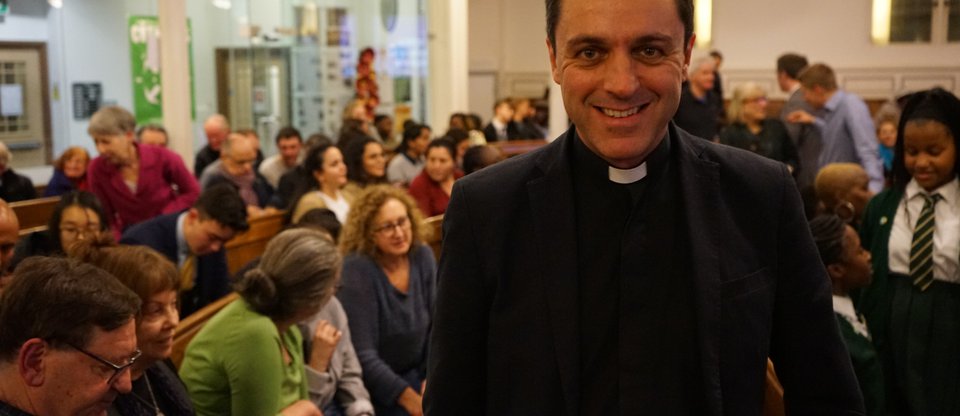How civic institutions can be at the forefront of social change
Blog written by The Revd Dr Simon Woodman, Bloomsbury Baptist Church, Westminster Citizens
It was a privilege to host the London Citizens Delegates Assembly at my institution, Bloomsbury Central Baptist Church, in November 2019. Over 500 community leaders from civic institutions across the capital gathered to show how our power to bring about change for justice is magnified when we work together. The choice of Bloomsbury for this Assembly was no accident: in addition to being a member institution of West London Citizens, it is a church with a long history of engaging in works of social justice.

Revd Woodman at the London 2020 Delegates Assembly where he delivered this opening speech
Unusually for a Baptist Church, Bloomsbury was born as the result of one man's vision. Sir Samuel Moreton Peto had become fabulously wealthy by building railways and prestige buildings (including The Reform Club, the new Houses of Parliament, and Nelson's Column). He was also a Baptist and a Liberal MP, and his conviction was that Christianity should take money and power, and use them to bring about good news for the poor and the disadvantaged. He modelled this in his own business practice: he was at the forefront of fair employment in the Victorian era, and the Navvies who built his railways were paid weekly and in cash (instead of in arrears with vouchers to spend in the company shop, as was usually the practice). By this, he empowered his workers to take control of their finances and improve their lives.
Peto decided that it was time for the Baptists to have a central London church, and that he would build it. Bloomsbury opened in 1848, and was the first Baptist church in London to stand proudly on a main road. The location for his new Baptist chapel was carefully chosen, on the border between the wealthy squares of Bloomsbury and the grinding poverty of the St Giles Rookery slum. He wanted his church to embody his conviction that Christianity should affect the poor as well as the middle classes.
The first minister was a man called William Brock, and he famously coined the phrase that, 'The Bible and The Times newspaper are the best materials for the preacher', expressing his conviction that religion should engage the issues of the world beyond the church. In 1851 the church's justice convictions were tested, with many visiting American Baptists coming to London for the Great Exhibition, and many wanting to come to see (and support) the new and famous Bloomsbury Chapel. The church at this point passed a resolution, which was advertised in The Times, that any visiting American who continued to support the 'abominations of slavery' would not be welcome.
Many other acts of working for social justice have followed over the 171 years since the church started, and notable speakers in the building have included Martin Luther King in 1961, the Dalai Lama, and more recently Jeremy Corbyn. Bloomsbury continues its long tradition of existing for the benefit of those beyond itself, and is proud to play its part in the social justice work of London Citizens in our time.

Members from London Citizens institutions vote to prioritise the issues we'll be taking to the Mayoral candidates
For more information on the journey that London Citizens members are taking to organise for a better London ahead of the London Mayoral 2020 elections, please see here .




